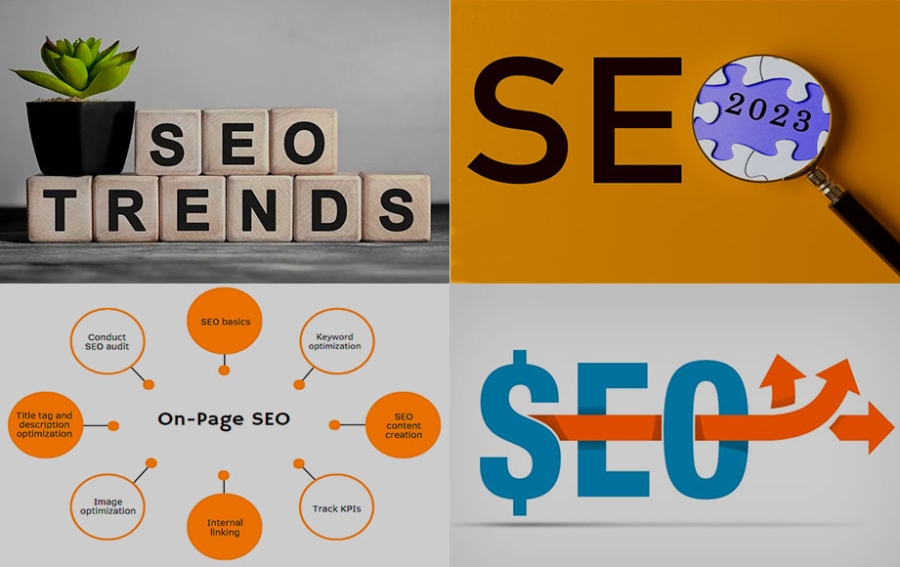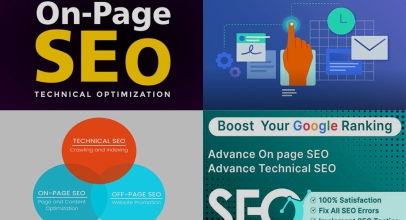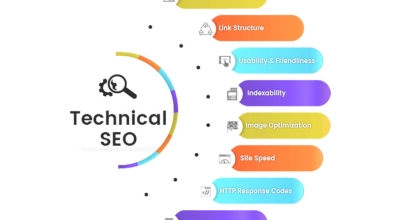- Trend 1: Optimizing Meta Tags for Voice Search
- Trend 2: Incorporating Emojis in Meta Tags
- Trend 3: Unique Meta Descriptions for Each Page
- Trend 4: Use of Keywords in Meta Tags
- Trend 5: Incorporating Strong and Engaging CTAs in Meta Tags
- Trend 7: Adhering to EAT
- Trend 8: Website Responsiveness for Mobile Devices
- Trend 9: Artificial Intelligence
- Trend 10: Content Value
- Trend 11: Visual Search
- Trend 12: Voice Search
- Trend 13: Video Content
Today's era underscores how swiftly technology is advancing. Anyone in the SEO realm needs to stay updated with the latest shifts and patterns in the field. Among all the SEO elements, the meta tags 'title' and 'description' remain paramount for website optimization. In this article, we will delve into the most significant trends for 'title' and 'description' meta tags in 2023 and offer tips for crafting effective meta descriptions.
Trend 1: Optimizing Meta Tags for Voice Search
Recently, voice search has been on the rise. This means users are posing questions using voice assistants like Siri, Alexa, and Google Assistant. Consequently, optimizing meta tags for voice search has become particularly crucial. To tailor your meta tags for voice search, it's essential to understand how users phrase their queries and adjust meta descriptions accordingly. For instance, you can incorporate a frequently asked question into your meta description and provide a concise answer.
Example of meta tags for a site about renting buses for the ski season in New York:
Title: Hunter Mountain Ski NY | Bus Transportation to Hunter Mountain
Description: Ski bus trips to Hunter Mountain from New York City for $59. We are the best snow bus in New York, which offers skiing / snowboarding every weekend!
Trend 2: Incorporating Emojis in Meta Tags
Emojis have long been a staple in text messages and on social media platforms, but they've recently started appearing in meta tags. This is because emojis can capture user attention, making your website more distinctive and memorable. Additionally, some studies suggest that integrating emojis into meta tags can enhance click-through rates (CTR).
For example, in a title meta tag, you can use emojis that resonate with the content of the page, such as ???? for a page dedicated to space exploration news.
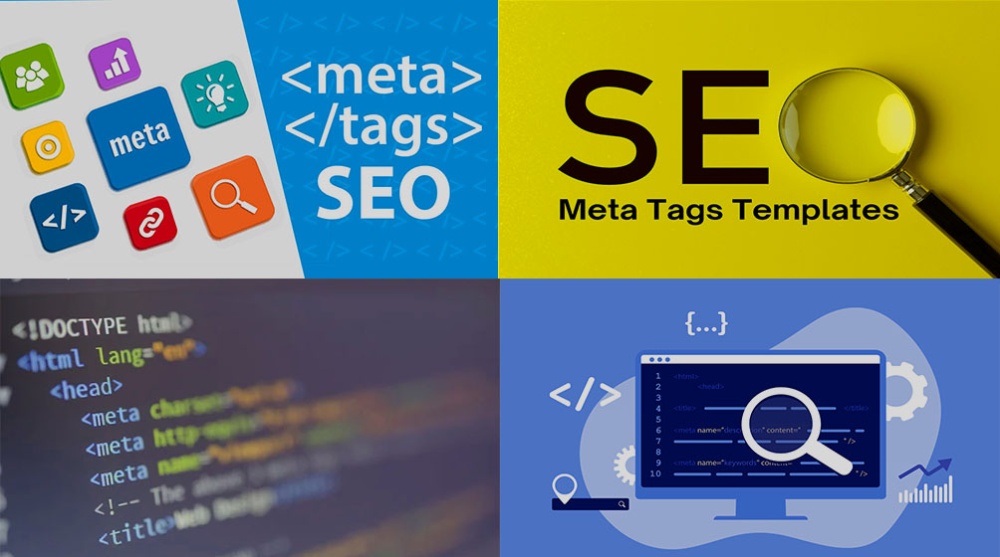
Trend 3: Unique Meta Descriptions for Each Page
A prominent trend in optimizing 'title' and 'description' meta tags is crafting unique meta descriptions for every page on a website. This arises from the fact that each page carries distinct content tailored for a specific audience. Using identical meta tags across all pages can lead users astray, leaving them uncertain about the page's exact content. Additionally, search engines might perceive repetitive meta tags as duplicate content, which can adversely affect your site's ranking.
Hence, producing distinct meta descriptions for each page is becoming an increasingly pivotal trend in 2023.
Trend 4: Use of Keywords in Meta Tags
Keywords in meta tags continue to be a vital component of SEO in 2023. However, as search algorithms become increasingly sophisticated, they are shifting towards favoring natural language over mere keyword stuffing. Hence, the inclusion of keywords in meta tags should be organic and not appear spammy. For instance, in a meta description, you might incorporate a target keyword once or twice but should avoid overloading it with repetitions.
Trend 5: Incorporating Strong and Engaging CTAs in Meta Tags
CTAs (Call-to-Action) in meta tags are gaining traction in 2023. This is attributed to CTAs' ability to grab user attention and persuade them to click through to your site. Within the 'description' meta tag, you can integrate a compelling CTA like "Order now and get a 20% discount" or "Join our community for exclusive offers." It's crucial to ensure that the CTA is enticing and aligns with the user's intent.
Optimizing 'title' and 'description' meta tags is a critical aspect of SEO, playing a pivotal role in enhancing your site's visibility on search engines. In 2023, several trends in meta tag optimization can aid in bolstering your website's search engine standings and driving increased traffic. Adapting to voice search, integrating emojis into meta tags, crafting unique meta descriptions for each page, leveraging keywords, and deploying strong CTAs are trends that can assist in formulating the optimal meta descriptions for your site.
Trend 7: Adhering to EAT

The EAT concept (Expertise, Authority, Trustworthiness) holds significant importance in SEO. Search engines use these three elements to gauge the trust level of a site, offer users an optimal online experience, and provide the most reliable information.
While EAT metrics aren't the sole determinants in page ranking, they are integral for securing top positions. The system favors trustworthy resources, and this trend will only intensify in 2023.
Here's how you can enhance your site's authority:
- Publish only high-quality, well-researched, and valuable content, complemented with relevant illustrations.
- Verify the accuracy of data and the external links embedded.
- Provide information about the authors of publications.
- Feature positive client testimonials and successful case studies.
- Regularly update company information and ensure contact details remain current.
- Furthermore, Google will deem your site more authoritative if other experts and online platforms recommend it and link to it.
Trend 8: Website Responsiveness for Mobile Devices
According to statistics, mobile devices account for 58.9% of global website traffic. The graph shows an increasing trend year on year, and 2023 will be no exception. As a result, adapting resources for different smartphone resolutions and operating systems is crucial for effective SEO promotion. The simplest way to determine a site's mobile-friendliness is to search for the Google Mobile Friendly Tool in Google's search bar and input the URL you wish to analyze.
Before enhancing your website's performance on mobile devices, ensure it is built with responsive coding and frameworks. To minimize page load delays, consider using a Content Delivery Network (CDN) and compressing images. The Accelerated Mobile Pages (AMP) can also aid in optimization from a responsiveness perspective.
Trend 9: Artificial Intelligence

RankBrain Algorithm
RankBrain is a machine-learning system launched in 2015 that assists Google in better understanding users' intentions during search queries, and in providing them with the most relevant information. RankBrain adjusts the results by examining the current query based on previous ones and their performance. Thus, it can display results without the presence of exact words in the query. For instance, when someone searches for "Height of an architectural monument in Paris," Google intuitively understands the user's intent to know about the Eiffel Tower and provides relevant information even though its name isn't explicitly mentioned in the query.
When creating content optimized for RankBrain, the foremost consideration should be understanding what your target audience wants to see when they input specific search queries. Popular keywords in meta-tags and texts become futile without grasping the primary goals of users.
BERT Algorithm
In 2019, Google introduced the updated BERT algorithm – a machine-learning technique for training natural language processing based on neural networks. It revolutionized how the search engine now processes queries. With BERT, Google has enhanced capabilities to determine context within queries, better interpret them, and deliver corresponding results.
Previously, Google interpreted search queries word by word. With the new update, the system can analyze the entire phrase and understand the text in the search bar as a human would: the entire thought, not just individual words. BERT reinforces the fact that the old method of stuffing a vast number of keywords and creating unnatural-sounding texts no longer works and only diminishes a website's search ranking.
Specific optimization for the BERT algorithm isn't required, but it's crucial to understand that context plays a pivotal role.
Trend 10: Content Value

Structured and regularly updated texts are essential for SEO promotion. However, they alone are not sufficient. In 2023, content must clearly, precisely, and comprehensively address user queries, offering all known solutions to a problem. Otherwise, the pages of your website might not appear in search results, even if the text contains a sufficient number of keywords.
If content aligns with the motivations behind information searches, users will have a positive experience visiting the site and are more likely to engage with the content fully. Consequently, search engine robots recognize such a site as valuable for readers, boosting its position in SERP and making it more likely to appear in Featured Snippets or the "People also ask" section.
It's vital to complement texts with visual content. By incorporating infographics, images, and videos, you'll drive more traffic and enhance the usability of your platform.
Trend 11: Visual Search

Visual search for images and videos is only set to grow in prominence. This trend is fueled by the rapidly increasing popularity of "visual" social networks such as TikTok, Instagram, and Pinterest. Another reason is the simplicity and convenience of the method for finding a specific product or service. For instance, one can quickly snap a photo of a product in a brick-and-mortar store with their smartphone, upload it to Google, and learn more about it.
To stand out among competitors, optimize your website for visual search: upload high-quality images, add relevant captions, and provide clear descriptions.
Furthermore, Google recently announced that traditional search results would feature more visual elements. Depending on the query, this will also include content from platforms like YouTube, Instagram, and TikTok.
Trend 12: Voice Search
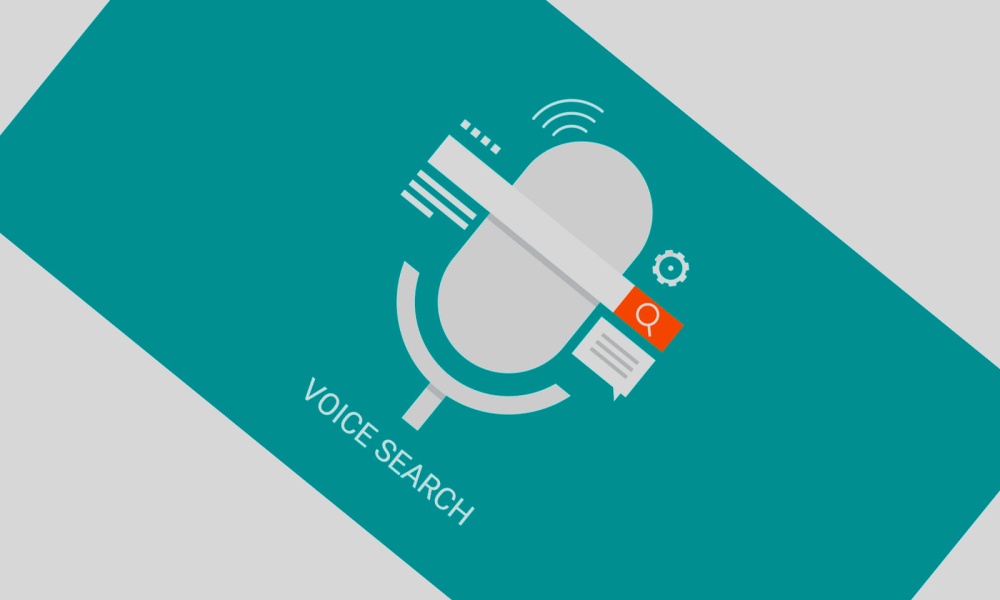
With the rising popularity of smart speakers, more and more individuals are turning to voice queries to search for information online. According to Google's statistics, in 2022, around 27% of the global population used voice search on their mobile devices. The majority of these users are from the U.S. While voice search isn't yet in high demand in Ukraine, we recommend considering its optimization, especially for brands planning to scale their business beyond their home country. To ensure that your website appears in search results for those using voice queries:
- Utilize long-tail keyword phrases and question-based sentences in both content and meta tags.
- Incorporate a Frequently Asked Questions (F.A.Q.) section.
- Create content that has a more "conversational" tone.
It's also crucial to consider website optimization for voice search when setting up targeted advertising. For instance, integrating question-based keywords into ad campaigns can be beneficial.
Trend 13: Video Content

Today, video content is a massive component of the digital landscape. According to Cisco's predictions, by 2023, about 82% of global content will be in the form of videos. Leverage video clips to enhance the ranking of your website's pages: the more interactions (views, shares, likes, comments) your video garners, the higher the chances of it ranking at the top in search results. Moreover, utilizing original video content offers an excellent opportunity to further promote your business through platforms like YouTube.

